Interviews

REGINA SILVEIRA: “I ALWAYS UNDERSTOOD THAT EACH REPRESENTATION OF THE REAL IS PURE ARTIFICE, CODED AND CULTURALIZED”
The Brazilian artist Regina Silveira has a long career in which she tries to explore different notions of reality through her work with lights, shadows and distortions. In her five decades of artistic work, she has dealt with themes and explored media that tie in with her idea. "I choose the medium that best solves my intentions, and then I look for the skills and technical resources to make the work feasible, focusing on being a non-specialist in any medium." The artist exhibited in Europe and the American continent, much of her work is in public collections such as the Reina Sofía museum.
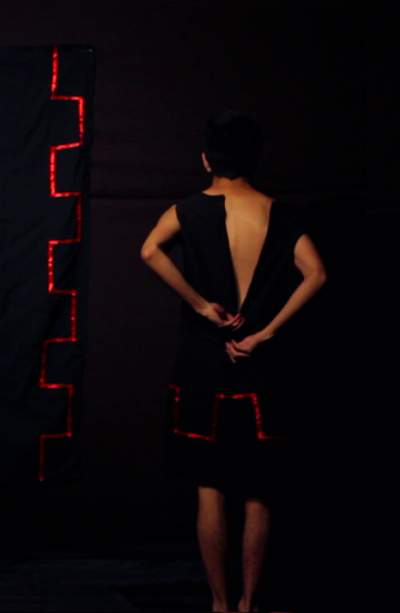
"IN THIS BIENNIAL, ART HAS THE ROLE OF BREAKING THE ESTABLISHED SILENCE." INTERVIEW WITH ALEXIA TALA
Alexia Tala is curator of the 22nd Bienal de Arte Paiz that is taking place in Guatemala until June 7. The Biennial of Arte Paiz Guatemala is the most important in the country and the oldest in Latin America.
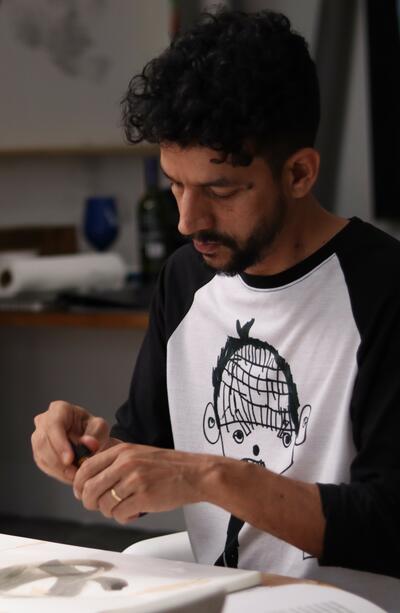
"THE COURSE OF THE WORK IS NOT DELIBERATE." INTERVIEW WITH JUAN HENRIQUEZ.
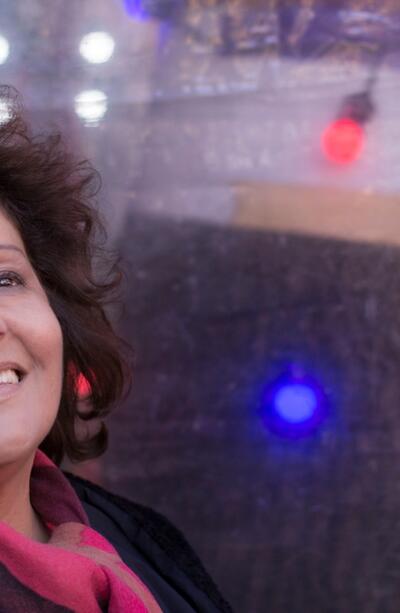
MARÍA ROSA ANDREANI | “WE LOOK FOWARD TO SUPPORT WHAT IS DIFFERENT, WHAT IS NEW AND SURPRISES”
In the context of Andreani Foundation's new space in the neighbourhood of La Boca, its director, María Rosa Andreani, talks about the first year of cultural management, the details of the building designed by Clorindo Testa and the future projections that the foundation proposes for the Argentine contemporary art scene.
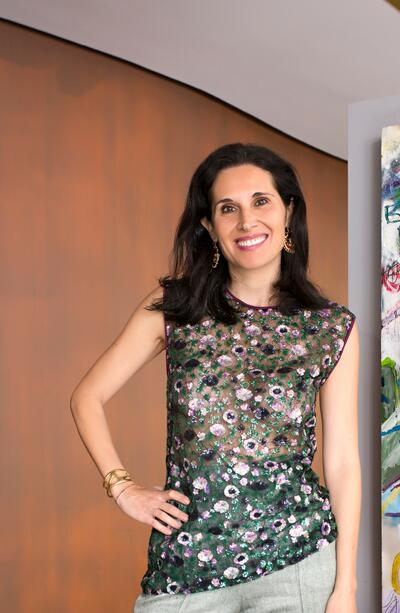
SOFÍA URBINA | STUDYING THE CONTEMPORARY ART MARKET FROM WHITHIN
The founder and director of Art Advisory Services, Sofía Urbina, launches an intensive course to learn about contemporary art and its market, and the investment possibilities offered by the art industry today.
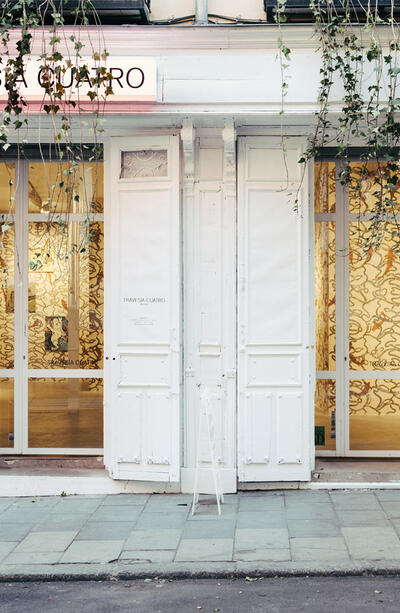
BETWEEN MEXICO AND SPAIN IN THE MIDST OF THE PANDEMIC | INTERVIEW WITH SILVIA ORTIZ
In the midst of the health and economic crisis that has hit the world and the art industry, Silvia Ortiz opens her gallery to us to talk about the work of Travesía Cuatro during the pandemic, the new ways of conceiving the gallery as a result of it, her vision of collecting in Spain and Latin America, and the possibilities that the historic moment that we have had to experience offers a space like this one.
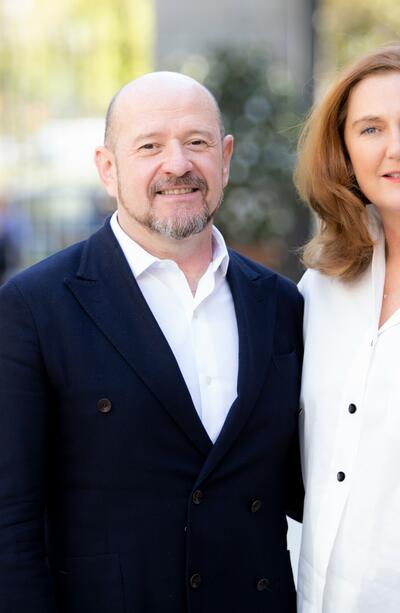
TBA21, A NEW VISION OF CONTEMPORARY ART | INTERVIEW WITH CARLOS URROZ
Weeks ahead of the st_age (digital exhibition programme developed by the TBA21 Foundation) Season 2 we take a brief look at the foundation's working model and talk to Carlos Urroz, director since 2018, about the types of projects they carry out and their relationship with contemporary art in Latin America.
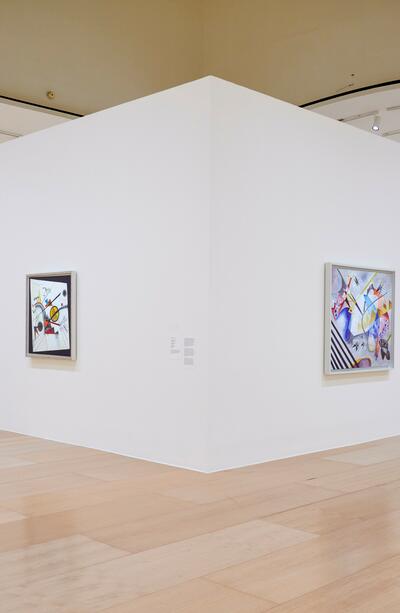
KANDINSKY 360º: "THE PROPOSAL IS AIMED AT PREPARING YOUR VISIT OR REVISITING THE EXHIBITION".
David Díaz, the Museum's Information Systems Coordinator, tells us about the details of the Kandinsky 360º project and the work being done by the Guggenheim-Bilbao in relation to new technologies. "In the last three years we have understood that digital transformation is one of the main tools for the museum’s strategic plan," he explains. "Since then, we have started to implement all kinds of technologies to think of new ways of bringing exhibitions closer to the public. When the pandemic broke out, we were already prepared".
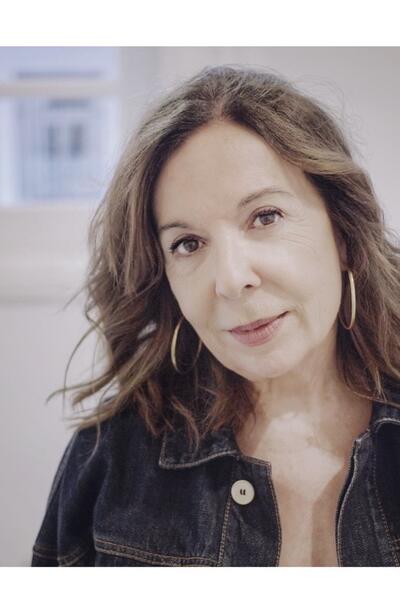
“THAT’S THE NEXT STEP: STUDY, RESEARCH AND SPECIFIC PROJECTS FOR THE ARTISTS” | INTERVIEW WITH ELBA BENITEZ
The Galería Elba Benítez was founded in 1990. Located on the ground floor of a 19th century building the space is already an emblem of the Madrid art circuit. On the way to its 31st birthday, it is one of the must-visits for contemporary art collectors.
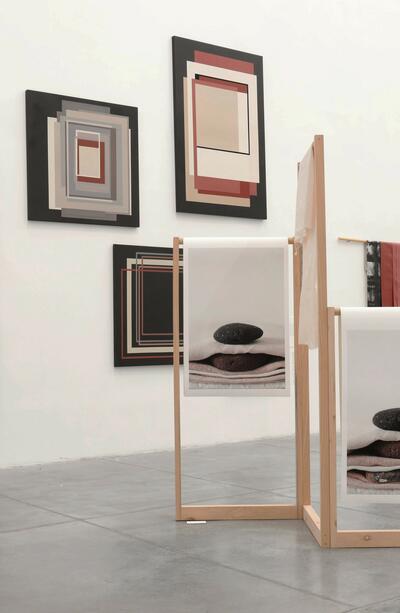
"SPACE BETWEEN WORLDS": THINKING IN AN UNCLASSIFIABLE MANNER
The exhibition was conceived and realised during the pandemic, which is why María Fernanda Carlos relates this state of time to one of suspension. The artist describes this pandemic state "between what was and what will be," calling it that "grey space." Making a common thread, María Fernanda Carlos reveals to the audience a relationship of ideas of what it means to be in that space between worlds in which we can find ourselves.
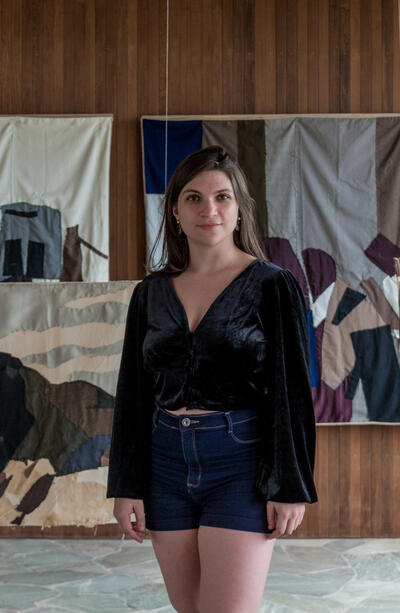
RETHINKING HISTORY THROUGH THE LENS OF LANGUAGE: AN INTERVIEW WITH ELIÁN STOLARSKY
In 2018, at only 28 years of age, the National Museum of Visual Arts in Montevideo (MNAV) held a solo exhibition of her work Y todos los otros, where she reconstructs her family’s Jewish past, explores the construction of Polish identity after World War II emigration and, ultimately, creates a historical archive of a generation through printmaking, textile art and animation. Since 2015 she has been living in Europe: first she lived in Belgium, where she enjoyed a residency in the Frans Masereel Centrum’s program, and now she is in Spain, where she arrived to be part of Casa Velázquez’s residency program and where she remains.

MARIE ORENSANZ: "THE ARTIST IS A WITNESS OF HIS TIME"
Within the framework of Buenos Aires Art Week, the Argentine artist Marie Orensanz tells us about the artwork installed in the Seeber Park and reveals her perspective of the contemporary context. In addition, she makes a journey through her career with anecdotes in the first person.

Roc Laseca: "we already know how to die in museums, now we have to learn how to live in them"
Interview with Roc Laseca on the occasion of the International Museum Day

Argentina ARCO platform: Interview with Inés Katzenstein
Inés Katzenstein is curator and art critic. She directs the Artists Program of Torcuato Di Tella University, of which she is also the founder. She is the curator responsible for "Argentina Plataforma ARCO" in the fair ARCOMadrid 2017.

Interview with Graciela Speranza "ARCOMadrid exhibits the natural display of a variety"
Graciela Speranza is a writer, teacher, essayist and art critic. At the ARCOMadrid Art Fair 2017, he coordinates the Art and Literature Day, with the participation of Alan Pauls, Fabio Kacero and Patricio Pron.

Leandro Katz in conversation with Julia P. Herzberg
The visual artist, writer, and filmmaker spoke with Julia P. Herzberg for Arte al Día about his work process, his interest in photography and its boundaries.

Roaming Biennal: Interview with Charles Esche
31° São Paulo Biennal curator

Aníbal Jozami: consider globality from the south
The Dean of the UNTREFF and brand new Director General of the Unasur, spoke with Arte al Día about this new project of regional integration that will take place in Buenos Aires in 2017.

Marina Abramovic “I like to push the limits, but I love life too much”
During her passage through Buenos Aires, Marina Abramovic talked about her beginnings as a performance artist, her relationship with death, and the artistic experiences that left the strongest imprint on her in an interview for Arte al Día International.

Eduardo Basualdo
Sitting in a pub in Buenos Aires in mid-July, the 56th Venice Biennial seems an already distant event. This edition is, however, an important one for the Argentine art scene, which it will be worth revisiting for further information and definition of stances regarding the work of the three artists from this country who were invited to participate in the exhibition All the World’s Futures, curated by Okwui Enwezor.

Curatorship as Narrative and as Collective Practice
Agustín Pérez Rubio (Valencia, 1972) recently took office as Artistic Director of Malba (Museum of Latin American Art, Buenos Aires). This interview explores Pérez Rubio’s vision of Argentine art from a propositional perspective.

INTERVIEW with NEKANE ARAMBURU
| The Museum of Modern and Contemporary Art of Palma, Majorca, Es Baluard, is beginning a promising stage under the direction of Nekane Aramburu. |

Pablo León de la Barra or Curatorship as Ludic Manifesto
Playfulness –in its most genuine and lighter expression, yet one that is capable of shaking our world imaginaries – is, like the shadow of Pablo León de la Barra, the new Guggenheim UBS MAP Global Art Initiative Curator of Latin American Art, inseparable from his figure. An invaluable advantage for the contemporary art of the region, which he will bring to the iconic New York museum during his two-year residency.

Francisca Sutil in conversation with Julia P. Herzberg
Julia P. Herzberg: Let’s talk about the various decisions you made when creating Mute, this very beautiful series of paintings on paper characterized by rows of undulating abstract gestures in the form of small oblong marks.

Marina Abramovic in Conversation with María José Arjona
As an introduction to the work of Marina Abramovic (Belgrade, Yugoslavia, 1946) Sarah Lyall wrote in The New York Times dated October 19, 2013: “In the name of art, she has hung naked on a wall and carved into her own stomach with a razor..."

Miguel López in Conversation with Cecilia Fajardo Hill
C.F.: I’d like you to tell us about your intellectual training and the ideas that appear in your work, which are inserted in fields as diverse as “queer” politics, art and protest, twentieth-century Peruvian art, memory reactivation, and the processes of “historicization” of Latin American art between the 1960s and the 1980s, ideas that are, on the one hand, specific and constitute an archaeology of little researched histories of Peru and Latin America, and that offer, on the other hand, perspectives that disavow traditional art history models and set themselves up as possible spaces of critical re-signification.

GUY BRETT IN CONVERSATION WITH GABRIEL PEREZ-BARREIRO
Gabriel Pérez-Barreiro: Guy, you have worked primarily as an art critic, but you have also curated several very important exhibitions. Many people think these two activities are somewhat incompatible, and there are few cases like yours. How do you approach this crossover, and what makes you decide to curate an exhibition rather than, say, writing an essay about the same artists?

CASA DAROS, RIO DE JANEIRO
The Brazilian Isabella Rosado Nunes and the Cuban Eugenio Valdés Figueroa are the Directors of Casa Daros in Rio de Janeiro.

Chus Martinez in conversation with Octavio Zaya
Chus Martínez, the Spanish curator who is dOCUMENTA (13) Head of Department, and Member of Core Agent Group and was recently appointed Chief Curator at El Museo del Barrio, answers a selection of questions posed to her by her colleague, curator Octavio Zaya, who has been appointed Curator of the Spanish Pavilion at the 55th Venice Biennial (2013).

José Roca in a conversation with María Inés Rodríguez
The Colombian curator José Roca, who is the newly appointed Estrellita B. Brodsky Adjunct Curator of Latin American Art at Tate, London, and who represents the gallery in Latin America and plays a leading role in strengthening its already close relationship with the art of the region, was interviewed by his fellow countrywoman, María Inés Rodríguez, recently appointed Chief Curator at the Tamayo Museum, after having served in the same capacity at the Castile and León Museum of Contemporary Art (MUSAC).

Conversation with Serge Lemoine on Luis Tomasello
The exhibition Tomasello. Visible Structure and Reflected Color, organized by Ascaso Gallery in Miami, showcased the work of this master who expanded the view and the possibilities of lumino-kineticism, under the curatorship of Serge Lemoine, Professor Emeritus of Art History at the Sorbonne University, Paris, a theoretician in the field of geometric abstraction and concrete art, and the author of revealing texts such as Mondrian et De Stijl, or François Morellet, or Aurélie Nemours.


